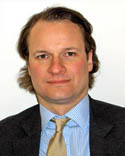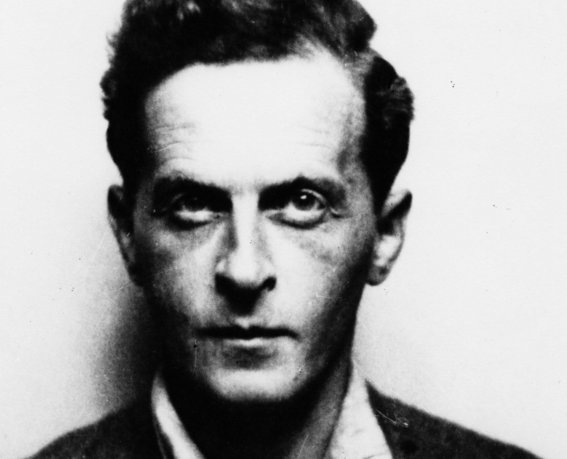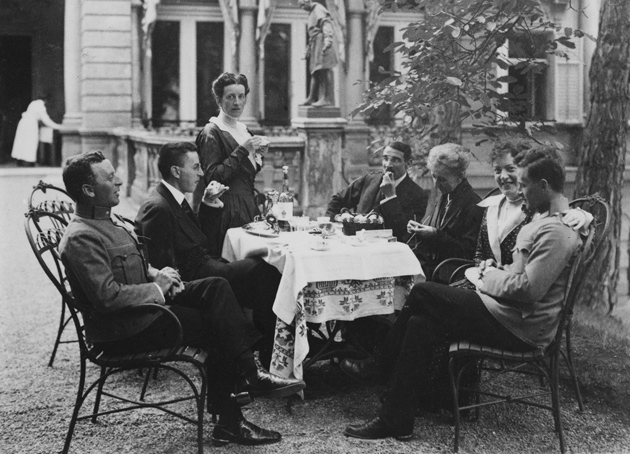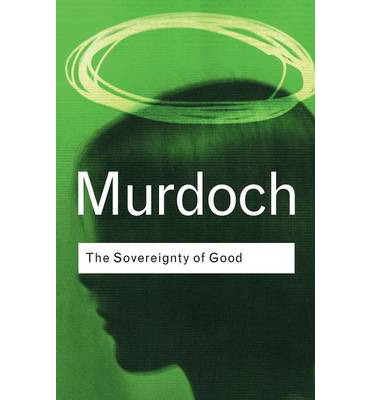Wittgenstein's Ethical Enterprise and Related Matters
Interview by Richard Marshall.

'I think what unifies Freud with Plato and Aristotle is a mechanism with quite a few moving parts. Thus, they all have views about human motivation, in particular about the relations of reason and appetite, and they all have views about how these motivational structures bear on the prospects both for human well-being and for human excellence (including but not restricted to moral excellence).'
'One cannot possibly understand the totality of what Wittgenstein was up to - the later Wittgenstein included - unless one sees his enterprise as an ethical one, though explaining why that is so is tricky. (Roughly, it is tricky because the relationship which explains the ethical meaning of his enterprise - the relationship between the particular philosophical problems he struggled with and his own sense of being a fallen creature, such that solving the problems would constitute a kind of redemption for him from his fallen condition - has to be seen as a symbolic one: contrary to some interpretations, being philosophically confused isn’t, even for Wittgenstein, literally an ‘illness’.'
'I am very firmly of the view that philosophy needs to be aware of the non-philosophical investigations going on in its very many neighbouring disciplines (whether that is in history or in mathematics or in art or in psychiatry: it’s not as if everything that isn’t philosophy is science), without surrendering its responsibilities to any of them. After all, quite often when things start getting really interesting in these neighbouring disciplines it’s because they are getting philosophical, whether or not this is recognized.'
Edward HarcourtEdward Harcourt has been a Fellow of Keble since 2005. From 1998 to 2005 he was Lecturer and then Senior Lecturer in Philosophy at the University of Kent, and from 1993 to 1998 Domus Fellow and Tutor in Philosophy, Lady Margaret Hall, Oxford. He has been a Visiting Research Fellow at the University of California, Berkeley, a Visiting Lecturer at the Institut für Philosophie, University of Leipzig, and a Mind Association Research Fellow. Before taking the BPhil and DPhil in Oxford he was an undergraduate at Trinity College, Cambridge, where he read Philosophy (Part I) and History (Part II). He is currently Principal Investigator of the Wellcome ISSF project ‘Therapeutic Conflicts: Co-Producing Meaning in Mental Health’, a director of the biennial Oxford Summer Schools in Philosophy and Psychiatry, a convener of the seminar series Meaning and Mindedness: Encounters between Philosophy and Psychoanalysis at the Tavistock Clinic (London), and Chair of the Board of the Faculty of Philosophy. Here he discusses whether ethics should be an ideology-free zone, the relationship of psychoanalysis and philosophy, the relationship between Freud and Aristotle, anti-psychiatry, Wittgenstein's ethical enterprise, Adolf Loos, Nietzsche, avoiding the phrase 'virtue ethics', Nietzsche and Aristotle, development psychology, about thinking about oneself, Cotard's syndrome, 'happenings outside one's moral self and the importance of literature for ethics. Winter's nearly here: take a dram of Glenmorangie and off you go...
3:AM:What made you become a philosopher?
Edward Harcourt:The first book I read which was officially labelled ‘philosophy’ was Popper’sThe Open Society and Its Enemies. That was at school, thanks to one of my teachers. I also read other things at the same time which didn’t carry the label, but which seemed to me then also to be philosophy - some of Saul Bellow’s novels, for example. And I discovered that I liked picking arguments to pieces. So - though that ’so’ is not meant to imply that these were the most solid of reasons - I decided to study philosophy for my first degree.
As it turned out, most of my undergraduate career was spent studying history. I considered doing graduate work in it too, but much as I value the social and historical dimensions of philosophy, I don’t have the right habits of thought to be a historian - my mind was constantly dragged back towards abstract questions. The summer before I arrived at Oxford as a graduate student in philosophy, I read one after the other Aristotle’s Nicomachean Ethics, George Eliot’s Felix Holt, and some psychoanalytic writing - Rycroft and Winnicott, mainly. It seemed to me that you could fit them all together, and what they said (as it were in three-part harmony) was that a well-lived life (helped along if need be by psychotherapy) had the shape of a love-comedy, whose happy ending was at one and the same time an education in love and the acquisition of the virtues (indeed, was the acquisition of the virtues because it was an education in love) - ’nature’s comic opera’, in Winnicott’s phrase, a kind of developmental Grand Slam. My youthful mission was to show that all that was true. I had no idea how to do that, of course, and worked for quite a while on quite other and much ‘drier’ things - probably just as well. Still, the area of investigation in which ‘nature’s comic opera’ is (as I now see it) one peculiarly optimistic position describes a fair bit of where I have worked so far. But beyond finding some questions that kept my attention, and being lucky enough to have the opportunity to go on working on them, there was no ‘right, now I’m going to become a philosopher’. (In those days you only got 'career advice' if you wanted to leave academia.)

3:AM:Should ethics be an ideological free zone?
EH:If it should be, then ethics is certainly failing to meet that ideal, since all sorts of ideological differences get played out in ethics (that is, in moral philosophy as it is pursued in the academy), even if they aren’t always ideologies that feature in the standard catalogue of these things - socialism, neo-liberalism, environmentalism and so on. Sometimes of course these differences are played out in a submerged way, because the adoption of a particular methodology within which philosophical disagreements are then allowed to occur already conceals some large-scale parti pris - ‘ideology' if you will. Moral philosophy is properly employed in bringing these submerged differences to the surface. But just supposing we got to a point where every such difference was patent, why would we want to call the continued attempt to articulate and resolve them something other than ‘moral philosophy’?
3:AM:You’ve written about ethics and why psychoanalysis should feature in philosophical discussions about ethics. Can you say something about why this hasn’t always been obvious?
EH:I didn’t quite say that it should feature in philosophical discussions about ethics. First of all, I wouldn’t dream of saying that psychoanalysis is relevant to every topic in ethics. Secondly, even where it is relevant - for example, to the study of the relations between human nature, human excellence, and the good life for human beings - I wouldn’t say that philosophers simply can’t study these things properly if they don’t look at psychoanalysis. What I have said is that the philosophical canon in this area should include psychoanalysis, because it so obviously occupies the same territory as the acknowledged classics - Plato, Aristotle, Kant, Nietzscheand so on. I can’t really think of any good reasons for its having been left out, though there are plenty of bad ones. For instance, psychoanalysis thought it would only be taken seriously if it could show it was ‘hard science’. Philosophers had such a great time arguing that it wasn’t hard science that they unfortunately ceased to see psychoanalysis as trustworthy on any topic. Then psychoanalysis started seeing philosophy as an enemy, and at the same time failed to become self-conscious of much that was of interest about itself.
3:AM:Is Freudianism a continuation of the Platonic-Aristotelian approach to ethics? Don’t Aristotle and Plato link mental health with moral goodness, and mental illness with vice, and if so wouldn’t that put them in an anti-psychiatry camp?
EH:I think what unifies Freud with Plato and Aristotle is a mechanism with quite a few moving parts. Thus, they all have views about human motivation, in particular about the relations of reason and appetite, and they all have views about how these motivational structures bear on the prospects both for human well-being and for human excellence (including but not restricted to moral excellence). If that is an ‘approach’, then yes - Freud continues the Platonic-Aristotelian approach. However, within that ‘approach’, many different more particular views are possible, depending on how the various parts of the mechanism are configured, and I would not want to say that Freud has the same particular views as Plato or Aristotle. I take it that Aristotle was a great optimist - the life in which our natures are perfected is also the life in which we possess and exercise a cluster of social virtues, and the life which is maximally best for each of us. Freud, at least in one of his voices, didn’t think that - acquiring that cluster of social virtues may be a necessary compromise in the interest of survival but it won’t perfect our natures (because the ‘real us’ remains a set of appetites which will go largely ungratified), and for the same reason socialization is likely to make us miserable.
The question about anti-psychiatry is more complicated. That’s partly because people can mean such different things when they say ‘vice is mental illness’. Sometimes they mean vicious people should be blamed less - because they have an unacknowledged excuse for behaving the way they do. Sometimes, on the other hand, they mean mentally ill people should be blamed more - because in its weak-kneed medicalizing fashion, society at large holds back from applying condemnatory ‘vice’ labels where they properly apply. But neither of these popular messages was characteristic of anti-psychiatry as I understand it. If there is a link to anti-psychiatry, it’s via Szasz’s thought that the mentally ill are struggling with 'problems in living’ - that is, perhaps, with Socrates’ question ‘how should one live?’ I suspect this is true of some people with mental illnesses and not of others - if you are in a position to say ‘these are the problems, I just don’t know what is the best thing to do about them’, you already need to be pretty well. I also suspect - though I haven't investigated this properly with reference to the texts - that some of the bits of Aristotle that seem most continuous with modern theorizing about mental illness don’t exemplify his thought that vice is disorder of the soul, but are rather exceptions or at least additions to it - for example, the slave in the Ethics who 'ate the liver of his fellow'.
[caption id="attachment_82858" align="alignnone" width="367"] [Ludwig Wittgenstein , schoolteacher, c. 1922
[Ludwig Wittgenstein , schoolteacher, c. 1922
Permission, courtesy of the Joan Ripley Private Collection; Michael Nedo and the Wittgenstein Archive, Cambridge; and the Bodleian Library, Oxford.][/caption]
3:AM:Wittgenstein didn’t write about ethics but nevertheless many claim that his approach to the practice of philosophy is ethical. Do you agree?
EH:Yes, in a way. One cannot possibly understand the totality of what Wittgensteinwas up to - the later Wittgensteinincluded - unless one sees his enterprise as an ethical one, though explaining why that is so is tricky. (Roughly, it is tricky because the relationship which explains the ethical meaning of his enterprise - the relationship between the particular philosophical problems he struggled with and his own sense of being a fallen creature, such that solving the problems would constitute a kind of redemption for him from his fallen condition - has to be seen as a symbolic one: contrary to some interpretations, being philosophically confused isn’t, even for Wittgenstein, literally an ‘illness’.)
That said, I also think you can detach Wittgenstein’s approach to particular philosophical problems from the ethical meaning he thought his enterprise had as a whole: you don’t have to think that what you are doing has ethical meaning for you in order to make good philosophical use of, say, Wittgenstein’s ideas about the problem of other minds, if that’s the problem you are working on. So, again in contrast to some interpretations, I think the methodological remarks in the Investigations- which contain much of the poetry of the book - to some extent float free of the arguments (yes, I did say ‘arguments’) in the rest of the book.
3:AM:Does comparison with Adolf Loos’s approach to architecture help understand Wittgenstein’s ethical approach to philosophy?
EH:Yes, though more significantly in connection with the Tractatusthan with Wittgenstein’s later work. Loos’s most famous essay is probably ‘Ornament and Crime’, in which he argues that - for moderns - ornamentation is a crime, on the grounds (as I remember) that it is a mere matter of choice, or not necessitated by anything. (If you are a pre-modern craftsman going by your craft traditions, then as far as you are concerned, decorating things in your traditional way will be necessary, because no alternative will be apparent to you - so, by Loos’s lights, it’s fine.) There we have a moralized injunction not to go beyond what’s necessary.

I think a similar injunction could be said to inform the early Wittgenstein’s conception of a perspicuous notation. The existential quantifier, for example, is a ‘decoration’, because (Wittgenstein thought) it expresses only what would in any case be expressed by the use of a name; a perspicuous notation would not contain it. Moreover, seeing the mere decorativeness of the existential quantifier is part of philosophical illumination, attaining which (again, as Wittgenstein thought) is an ethical project. Still, there are differences too - Loos’s injunction is to be fulfilled by making rather than seeing (’seeing the hardness of the soft’), and in any case I wouldn't want to say Loos is the only source for Wittgenstein’s ethical approach to philosophy, even in the Tractatus.
3:AM:Does your view of Nietzsche’s approach to ethics come from a similar place as Wittgenstein’s in that he is working on the question ‘what sort of life would be good for us, given the sorts of creatures that we are?’
EH:No. In my view, Nietzsche is indeed working on the question you say. But Wittgenstein in his philosophical utterances is not working on that, nor indeed as far as I can see on any other question in ethics. Otherwise put, though the significance of his work - for him, and anyone else who sees philosophy as he does - is ethical, its themes (unlike some of those of Nietzsche’s work) are not ethical.
3:AM:Would your view of Nietzsche fit in with the Aristotelian approach to ethics? Is this a sort of proto-virtue ethics of the sort Anscombe, Wittgenstein’s friend, endorsed? Or would you say that the view of Brian Leiterand Josh Knobeis more accurate – that Nietzsche is opposed the Judeo-Christian conception of ethics, and deontic ethics too but also dismisses Aristotelian views as flawed as well?
EH:First let me say that I like to avoid the phrase ‘virtue ethics’ if at all possible - though it isn’t often possible. At first the phrase was unhelpful because it reflected a misunderstanding of what neo-Aristotelians - back then the only people interested in the virtues, though there’s no reason why an interest in the virtues has to go with being a follower of Aristotle: witness Nietzsche - were trying to do. They were trying to ask some questions in moral psychology, but because consequentialism is distinguished by its answer to the question ‘what is the criterion of right action?' and neo-Aristotelians were critical of consequentialism, it was assumed that neo-Aristotelians must be advancing a view in the same theoretical ball-park as consequentialism. So a space as it were was made in the textbooks for a third ethical theory alongside consequentialism and ‘deontology’ (a word which has as garbled a history as ‘virtue ethics’ - just remember Bentham wrote a book by that name) - that is, for ‘virtue ethics'. Now of course some neo-Aristotelians do attempt to occupy the same theoretical ball-park as consequentialism, so the ‘virtue ethics’ label is unhelpful now not because it misrepresents neo-Aristotelians, but because it stands for too many different things at once.
As to Nietzsche and Aristotle, once again it matters how general the kind of thing is that we are going to call an ‘approach’. At a general level, Nietzsche and Aristotle are very much in the same business, because they are interested in the question you mentioned just now - the kind of life or lives that would be good for us given the kinds of creatures we are. But their particular answers to that question surely aren't the same. To be sure, Nietzsche is unfairly dismissive of Aristotle, possibly because he didn’t think very carefully about what Aristotle meant by ‘happiness’. What’s more, Aristotle's conception of the virtues is considerably less ascetic than a Christian or post-Christian conception, which tends to inform contemporary writers in the ‘virtue ethics’ mould - for example, making an anonymous charitable donation would have struck Aristotle as foolish, because of the opportunity foregone to blow one’s own trumpet; this makes for a further rapprochement with Nietzsche. But still, among the virtues the practice of which Aristotle thinks constitutes the best life for us are qualities Nietzsche seems to think would diminish us and pull our natures out of shape.
3:AM:Why do you think the philosophers who are working with an Aristotelian approach to ethics and who are interested in Aristotle’s ideas of human nature, human excellence and human well being should take notice of developmental psychological ideas of attachment theory?
EH:A respectable sense for the multiply ambiguous term ‘naturalism’ as it occurs in ethics is a thesis about continuity: a certain kind of naturalist would be satisfied to have shown not an identity between our ethical and non-ethical dispositions but an intelligible continuity between them, the smaller the increments the better.
Taking notice of developmental psychology should enable us to focus on questions about continuity, and so on the viability or otherwise of a naturalism of this kind. For this purpose the developmental psychology doesn't have to be attachment theory, and I am attracted to attachment theory partly for reasons only loosely related to 'continuity-naturalism' - that is, because it is an empirically more robust presentation of a strand in psychoanalysis. Still, attachment theory is also attractive because it shows quite neatly how to raise questions about continuity-naturalism.
The disposition to become attached is something that we have acquired through natural selection, and so is anchored in our pre-ethical natures. Meanwhile the various forms attachment dispositions take on under individual environmental pressures, including the family environment - secure, insecure-ambivalent and so on - are ethically inflected: the securely attached display at least some ‘virtues of intimacy' (like warmth towards special others, absence of excessive separation-anxiety with all its various consequences, the ability to ask for help when needed) which people in other attachment categories struggle with. So there’s a continuity story already. We can then go on to ask how tight the link is between these virtues of intimacy and other virtues, and to the extent that it isn’t that tight, what complicates it. All that would go towards an explanatory ‘placing’ of our ethical dispositions in a story that begins somewhere prior to the ethical, and so towards a version of the kind of naturalism I mentioned.
By the way, I think Wittgenstein is another valuable resource for anyone pursuing this kind of naturalism, since he urged us to ask what ‘natural facts’ underlie the possibility of our possessing certain concepts. Though Wittgenstein himself never did so, there is no reason why we should not ask this question about ethical concepts, and doing so would be another way of getting at the continuity between our ethical dispositions and more basic aspects of our natures that underlie them.
3:AM:There’s an extreme psychological condition where people don’t have the capacity of taking a first person point of view and talk about their own bodies in the third person. There’s a lot of philosophical literature that until recently has always taken for granted that to have a consciousness there must be a person being conscious but this condition seems to be counter-evidence. Do you think philosophers should pay greater attention to psychoanalysis and the role of loving nurture in the development of the capacity of a person to think about themselves and more generally stop taking the first person perspective for granted? Is this an area where Wittgenstein’s account of knowledge of other minds is helpful?
EH:I wouldn’t regard the extreme condition you describe as a counterexample to the thesis that to have consciousness there must be a person who’s conscious, since we need the idea of a person as the locus of the condition in order to make sense of their being something funny going on - for example, the presence of the usual non-inferential knowledge-link to bodily position in the absence of the first-person form of reporting it. That combination only counts as a psychological abnormality thanks to the fact that it’s a single human psyche where these things co-occur.

As to the development of the capacity to think about oneself, I’m sure we ought to pay more attention to the role of others in the development of this - I think there is an interesting confluence here between the ideas of various thinkers which developed (as far as I know) independently: Wittgenstein, some bits of psychoanalysis, and Vygotsky, for example. So if that is a case of unseating the priority of the first person, then I am all for it. However, I don’t know whether the role of others in the development of self-consciousness goes so far as to affect the bare capacity to use the first person pronoun. I’m also now less sure than I was in the paper to which I think you’re referring what difference loving nurture makes in all this - on the one hand it would be odd if the quality of one’s early interactions with others didn’t make any developmental difference, on the other one seems to be able to get a long way on the basis of mutual sensitivity and reciprocity which falls short of what one would ordinarily want to call love.
3:AM:Doesn’t Wittgenstein’s private language argument have difficulties if I can access my thoughts without knowing them as mine. In this extreme psychological condition (like Cotards syndrome) couldn’t I have access to my mind without knowing it is my mind. If so, then there seems no intrinsic difficulty in having the same access to other minds?
EH:There are several issues here. I don't know what to say about the private language argument in this connection, so I am going to leave that on one side. Next, Cotard’s syndrome: it sounds very different from the extreme condition you described earlier - saying ‘I am dead’ or ‘I have died', as I think Cotard’s’ sufferers do, is still a case of first-person thought. Finally, access. One might argue that the case you describe shows that access to my mind depends not on knowledge that it’s my mind, but just on the mind in question being mine (though I can’t give voice to that fact). If that’s so, the possibility of access to my mind without knowledge that it’s mine ought not to make any difference to my capacity to access other minds - because they aren’t mine. However, I think normal human beings do in fact have a kind of sensitivity or reactivity to others which underlies our ordinary capacity to know others’ minds.
3:AM:You’ve also thought about ‘happenings outside one’s moral self’ wCan you first sketch out the issues here?Is utilitarianism up to the job or are you arguing for a different approach?
EH:There’s an intuitive distinction between two ‘grades of ownership’ of certain kinds of states of oneself. Perhaps the easiest case is emotions. The base case is the ‘higher’ grade, where I both have the emotion and can answer for it - for example, say what it is about the emotion’s object that explains why I feel that way about it. At the ‘lower’ grade, I typically can’t do that - as with merely squeamish disgust, for example. This may also go with a phenomenology of being a victim of the state, being taken over by it, its being a familiar but alien presence (‘here it is yet again’), hence the inclination to say the emotion is ‘only topographically’ mine: it is going on in me as opposed to elsewhere, but that’s all. Various philosophers - Frankfurt being one, Williams another, Moran a third - have had interesting things to say about how that distinction should be theorized, and I had a go too, in an old paper (‘Mill’s “Sanctions”, Internalization and the Self’). More recently I tried to appeal to this distinction to fill out an argument against utilitarianism which I took to be present rather inexplicitly in Williams, the general idea being to fault utilitarianism by showing that it implies that moral emotions are always ‘outside’ happenings, when in fact they are sometimes inside and sometimes outside.
3:AM:Does Wittgenstein’s approach to bodily sensation and the whereabouts of pain – which ostensibly isn’t about ethics – help understand his approach to what he’s saying about living an ethical life?
EH:I can’t think of a way in which his views on the whereabouts of pain specifically do so, no - though I may be missing something. I also want to distance myself from the idea that there’s something Wittgenstein is ‘saying about’ living an ethical life - the proposition that his work as a whole has an ethical significance (for him) is not equivalent to the proposition that there’s something he’s saying about ethical living. That said, his views on sensations generally seem to me to be an example of something I said earlier, namely that his attempts to solve non-ethical problems in philosophy acquire an ethical meaning for him via a symbolic relationship between, on the one hand, the problem in its unsolved and its solved state and, on the other, himself in his ‘fallen’ and in his ‘redeemed’ state.
The symbolism is something like this: the privacy of sensations symbolizes the loneliness of a consciousness cut off from human fellowship, and 'turning the mind inside out’ - substituting a philosophical vision on which sensations are not private for one on which they are - symbolically repairs that cut-offness by really (at least if you accept Wittgenstein’s arguments) repairing the private linguist’s philosophical error. So Wittgenstein’s idea that undoing philosophical confusion has an ethical meaning is more than a general idea about the nature of philosophy - it reaches into the fine grain of the philosophical problems he chose to deal with. But to repeat, you don’t have to follow Wittgenstein on the ethical significance of undoing philosophical confusion in order to make use of the arguments he deploys in order to do that. And one might appreciate the symbolic significance of some of Wittgenstein’s choices of problem as one might appreciate a literary symbol, without as it were feeling an ethical meaning in one’s own philosophical work.
3:AM:Is literature important for ethics?
EH:Yes, in so many different ways that the connection is hard to sum up. For one thing, great literary artists can give us new concepts - introduce them and then show us how to use them. For another, reading literature right - seeing in it what is there, not just what we are antecedently determined to find there - itself demands a kind of ethical effort. But there is much more to it than that.
3:AM:And given that science is so ubiquitous nowadays, should philosophy reconfigure itself and join science rather than stay as a humanities subject? Why heed the humanities, and in particular the philosophers?
EH:Philosophy is already a rather Protean subject - the idioms of on the one hand a philosopher of logic or decision theory and, on the other, an aesthetician are already so different, and they are perhaps more readily recognisable as both belonging to philosophy than they are as both belonging to the humanities. But I am very firmly of the view that philosophy needs to be aware of the non-philosophical investigations going on in its very many neighbouring disciplines (whether that is in history or in mathematics or in art or in psychiatry: it’s not as if everything that isn’t philosophy is science), without surrendering its responsibilities to any of them. After all, quite often when things start getting really interesting in these neighbouring disciplines it’s because they are getting philosophical, whether or not this is recognized.
3:AM:And finally are there five books you could recommend to the readers here at 3:AM to take us further into your philosophical world?
EH:That is the hardest question of all! But at least you didn't ask ‘What are your five favourite books?’ Though I could name many others, I think the following will take you a fair way into my philosophical world:

Iris Murdoch, The Sovereignty of Good
Bernard Williams, Ethics and the Limits of Philosophy
Cora Diamond, The Realistic Spirit
Hans Loewald, Psychoanalysis and the History of the Individual
Alva Noë, Out of Our Heads
ABOUT THE INTERVIEWER
Richard Marshallis still biding his time.
Buy his book hereto keep him biding!